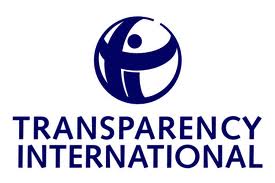 Transparency International representatives from nearly 100 countries today expressed deep concern about an increase in government restrictions on civil society in violation of fundamental human rights.
Transparency International representatives from nearly 100 countries today expressed deep concern about an increase in government restrictions on civil society in violation of fundamental human rights.
Groups that give voice to citizen concerns around the world are more often under attack. Restrictions include limits on their operations, cumbersome registration procedures and the elimination of tax exemptions.
At its 2012 Annual Membership Meeting, the world’s leading anti-corruption organisation adopted this resolution and five others on a wide range of topics including financial integrity, Afghanistan, the natural resources sector and Millennium Development Goals.
More specifically, Transparency International called on all states to integrate governance and anti-corruption in the post-2015 framework for the Millennium Development Goals.
In the financial sector, Transparency International calls for greater transparency and oversight of key benchmarks, including a reform of LIBOR. This resolution also advocates that banks and financial institutions disclose their risk exposures.
Land grabs and forestry should also be covered by new rules in the US and pending in the EU obliging oil, gas and mining companies to disclose revenues and payments to governments in each country of operation, Transparency International also said.
Transparency International also called on the Afghan government and international community to reinforce their efforts to fight rampant corruption.
In another resolution, Transparency International outlined seven priority areas for action by the leaders of the G20 concentrating on financial transparency, foreign bribery and restitution of stolen assets.
Further resolutions laid out positions on the future of development efforts after 2015.
The Annual Membership Meeting of Transparency International has re-elected incumbent board member Sergej Muravjov and elected Iftekhar Zaman as board members.
Brief biographies of the TI board members elected today:
Sergej Muravjov (Lithuania) is the Executive Director of TI Lithuania. He joined the chapter in 2005 and has been involved in numerous TI initiatives and advocated for a more effective UN Convention Against Corruption at the 2009 Conference of State Parties. He has published extensively on transparency, corruption and good governance, and has edited several books on public and private sector accountability. He has conducted consultancy tasks for the European Commission, UN Development Programme and the UK Department for International Development. Sergej Muravjov was first elected to the TI Board in 2009.
Iftekhar Zaman (Bangladesh) holds a PhD in economics and has worked extensively as a researcher and manager of research institutions such as the Regional Centre for Strategic Studies (RCSS) in Sri Lanka and the Bangladesh Institute for International and Strategic Studies (BIISS), where he worked for 19 years. Having published a wide range of books and research articles over his career, Zaman has been the Executive Director of TI Bangladesh since 2004. Zaman served on TI’s board from 2008 – 2011.
Transparency International is the global civil society organisation leading the fight against corruption
